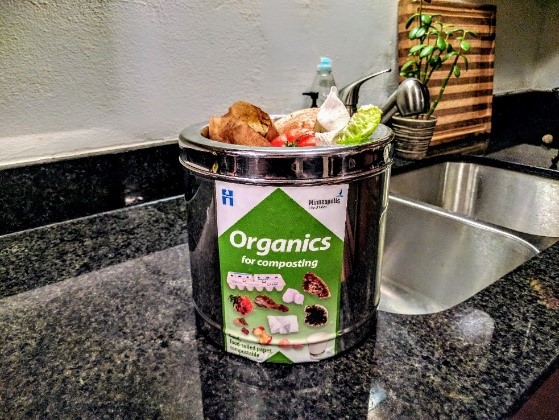It’s best to start in the kitchen as this is where most organics recycling is generated. You will generally need a collection container and compostable bags.
When you’re first getting started, it can be easiest to focus on collecting food. Spoiled food and food scraps are the most common material in the trash and are valuable in the composting process, which makes them the most important material to start collecting for organics recycling.
Once you are comfortable sorting your food scraps, start collecting napkins, paper towels, tissues and other non-recyclable or food-soiled paper for organics recycling as well. You can also add certified compostable paper and plastic plates, bowls, cups, containers, utensils, and other products
If you have issues with pests or smells or want your compostable bags to last longer, consider keeping a container in the fridge or freezer for “wet” organics like fruits, vegetables, and meat scraps.

Expand to other rooms
You can also collect organics in the bathroom, bedrooms and office. Remember items like tissues, paper towels, cotton balls, hair, and pet fur are accepted for organics recycling.
